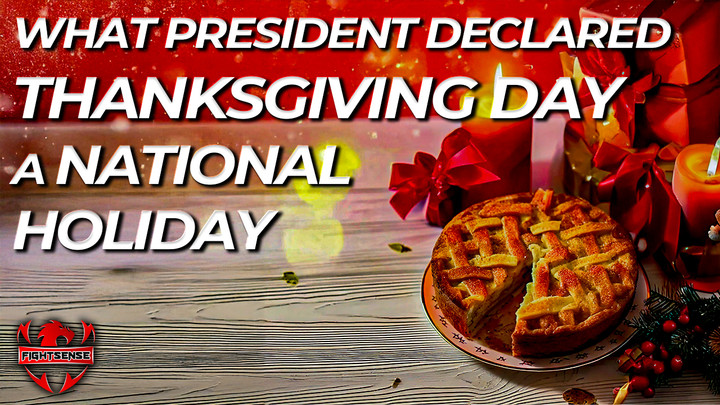What President Declared Thanksgiving Day a National Holiday?
19th Nov 2024
Thanksgiving is one of the most celebrated holidays in the United States, known for family gatherings, feasts, and expressions of gratitude. But the journey of Thanksgiving from local festivities to a nationwide celebration is deeply rooted in American history.
A pivotal moment in this journey was when a president officially declared Thanksgiving Day a national holiday. So, what president declared Thanksgiving Day a national holiday? Let’s explore the fascinating history behind this declaration and its impact.
Keynotes
- Abraham Lincoln declared Thanksgiving a national holiday in 1863.
- Sarah Josepha Hale’s decades-long campaign influenced Lincoln’s decision.
- Franklin D. Roosevelt fixed the date as the fourth Thursday of November in 1941.
- Thanksgiving celebrates gratitude, family, and American traditions.
The Roots of Thanksgiving: A Historical Perspective
Thanksgiving has its origins in 1621 when Pilgrims in Plymouth, Massachusetts, celebrated a bountiful harvest with the Wampanoag Native Americans. This event, often regarded as the "First Thanksgiving," symbolized cooperation and gratitude. However, it was not an annual or national tradition at the time.
In the years that followed, various colonies and states celebrated Thanksgiving on different dates, usually as a day of giving thanks for the harvest or significant events. There was no unified observance until the mid-19th century when a determined advocate set the wheels in motion.
Sarah Josepha Hale: The Crusader for Thanksgiving
Before answering the question, what president declared Thanksgiving Day a national holiday, we must recognize Sarah Josepha Hale’s unwavering efforts. Hale, a prominent editor and writer best known for penning "Mary Had a Little Lamb," was passionate about establishing Thanksgiving as a national holiday.
For over 30 years, Hale campaigned tirelessly, writing letters to presidents and publishing articles in her magazine. She believed that a unified day of gratitude would strengthen American values and bring communities together. Despite receiving little attention from earlier presidents, her persistence finally reached a receptive ear during the Civil War.
Abraham Lincoln’s Historic Proclamation
In 1863, amidst the Civil War, President Abraham Lincoln issued a proclamation declaring Thanksgiving Day a national holiday. This answers the central question: what president declared Thanksgiving Day a national holiday?
Lincoln’s decision was influenced by Sarah Josepha Hale’s passionate advocacy and the need for national unity during a time of division. On October 3, 1863, he declared the last Thursday of November as a day of thanksgiving and praise. His proclamation emphasized gratitude for blessings even during challenging times, stating:
“It has seemed to me fit and proper that they should be solemnly, reverently, and gratefully acknowledged as with one heart and one voice by the whole American people.”
This marked the beginning of Thanksgiving as a national tradition, uniting Americans in a shared expression of gratitude.
The Evolution of Thanksgiving: Franklin D. Roosevelt’s Adjustment
After Lincoln’s declaration, Thanksgiving was celebrated annually on the last Thursday of November. However, in 1939, President Franklin D. Roosevelt made a controversial decision to move Thanksgiving to the third Thursday of November to extend the holiday shopping season during the Great Depression.
This decision was met with resistance, leading to confusion and division, with some states adhering to the old date and others adopting the new one. In 1941, Congress passed a law officially fixing Thanksgiving on the fourth Thursday of November, where it remains today. This adjustment ensured consistency and solidified its place in American culture.
Thanksgiving Traditions: A Legacy of Unity and Gratitude
Understanding why the president declared Thanksgiving Day a national holiday reveals the deep historical and cultural significance of this tradition. President Lincoln’s proclamation during the Civil War highlighted the importance of gratitude and reflection, values that remain central to Thanksgiving today.
Modern Thanksgiving celebrations include:
- Family Gatherings: Families come together to share meals and express gratitude.
- Traditional Foods: Turkey, stuffing, cranberry sauce, and pumpkin pie are staples of the holiday feast.
- Parades: The Macy’s Thanksgiving Day Parade in New York City has become iconic.
- Football Games: Thanksgiving Day games are a beloved tradition for sports fans.
- Charitable Acts: Many people participate in food drives and volunteer efforts to help those in need.
Why Abraham Lincoln’s Proclamation Still Matters
President Abraham Lincoln’s declaration of Thanksgiving as a national holiday holds timeless significance. It was a response to Hale’s campaign and a strategic move to foster unity during a divided era. Lincoln’s legacy reminds us that even during turmoil, gratitude can be a powerful tool for healing and togetherness.
Final Thoughts: The Power of Gratitude
Thanksgiving is more than just a holiday; it’s a celebration of unity, resilience, and gratitude. By declaring Thanksgiving Day a national holiday, President Abraham Lincoln gave Americans a reason to pause and appreciate their blessings, even in the face of adversity. As we gather around the table each year, we honor the vision of leaders like Lincoln and advocates like Sarah Josepha Hale, who made this cherished tradition possible.
So, whenever someone asks, what president declared Thanksgiving Day a national holiday, remember the profound history behind this answer and the values it represents.
Disclaimer:
This blog is for informational purposes only and should not be considered as a comprehensive historical analysis. Readers are encouraged to consult additional sources for deeper insights.

